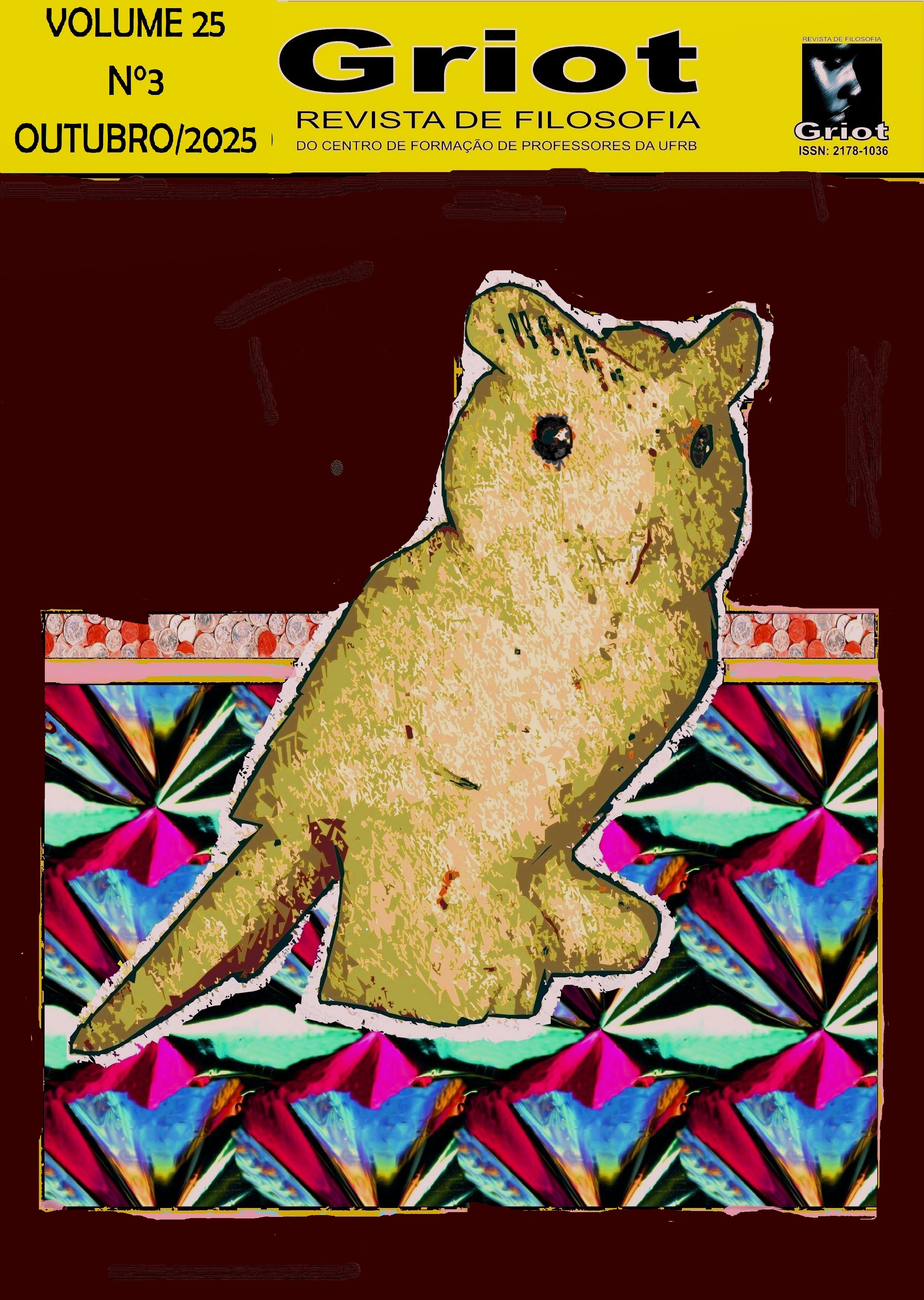Does Ockham’s razor matter to the problem of universals?
DOI:
https://doi.org/10.31977/grirfi.v25i3.5374Palavras-chave:
Ockham’s Razor; the Problem of Universals; Ontological Parsimony; Ideological Parsimony; Nominalism.Resumo
This paper investigates how Ockham’s Razor can be applied to compare and evaluate solutions to the Problem of Universals. Initially, I discuss three formulations of this principle. Two kinds of parsimony emerge from this debate: ontological and ideological parsimony. Concerning the Problem of Universals, there are three groups of solutions: Realism, Nominalism, and Trope Theory. Analyzing the most parsimonious theory of each, in terms of ontological and ideological parsimony, yields a negative evaluation of the Razor. Ontological and ideological parsimony are not useful for determining whether one solution to the Problem of Universals is superior to another.
Downloads
Referências
ARMSTRONG, D. M. A Theory of Universals: Volume I: Nominalism and Realism. Cambridge: Cambridge University Press, 1978.
ARMSTRONG, D. M. Universals: An Opinionated Introduction. Boulder: Westview Press, 1989.
BARNES, E. C. Ockham’s Razor and the Anti-Superfluity Principle. Erkenntnis, 53 (3), p. 353–374, 2000.
CAMPBELL, K. Abstract Particulars. Oxford: Basil Blackwell Ltd., 1990.
CARNAP, R. The Unity of Science. London: Kegan Paul, Trench, Trubner, and Co., 1934.
CHATEAUBRIAND, O. Ockham‘s Razor. In Logical Forms. Part II: Logic, Language and Knowledge. Campinas: Unicamp, 2005. p. 367¬–394.
DEVITT, M. Putting Metaphysics First: Essays on Metaphysics and Epistemology. Oxford: Oxford University Press, 2010.
HUEMER, M. When Is Parsimony a Virtue? Philosophical Quarterly, 59 (235), p. 216–236, 2009.
IMAGUIRE, G. Ockham’s Razor and Chateaubriand’s Goatee. Manuscrito, 31 (1), p. 139–54, 2008.
LEWIS, D. Counterfactuals. Oxford: Basil Blackwell Ltd, 1973.
NEWTON, I. The Principia: Mathematical Principles of Natural Philosophy. I. B. Cohen and A. Whitman (trans.). Berkeley, CA: University of California Press, 1999.
NOLAN, D. Quantitative Parsimony. British Journal for the Philosophy of Science, 48 (3), p. 329–343, 1997.
O’LEARY-HAWTHORNE, J., and COVER, J. A. A World of Universals. Philosophical Studies: An International Journal for Philosophy in the Analytic Tradition, 91 (3), p. 205–19, 1998.
OLIVER, A. The Metaphysics of Properties. Mind, 105 (417), p. 1–81, 1996.
QUINE, W. V. Ontology and Ideology. Philosophical Studies: An International Journal, 2 (1), p. 11–15, 1951.
QUINTON, A. The Nature of Things. London and Boston: Routledge & Kegan Paul, 1973.
RODRIGUEZ-PEREYRA, G. Resemblance Nominalism : A Solution to the Problem of Universals. Oxford: Clarendon Press, 2002.
RUSSELL, B. Mysticism and Logic. London: George Allen & Unwin Ltda, 1949.
RUSSELL, B. The Philosophy of Logical Atomism. In R. C. Marsh (Ed.), Logic and Knowledge Nottingham: Spokesman, 2007. p 175–281.
SCHAFFER, J. What Not to Multiply without Necessity. Australasian Journal of Philosophy, 93 (4), p. 644–664, 2014.
SOBER, E. Ockham’s Razors: A User’s Manual. Cambridge: Cambridge University Press, 2015.
SPADE, P. V. and PANACCIO, C. William of Ockham. ZALTA, E. N. (Ed.), The Stanford Encyclopedia of Philosophy. URL = <https://plato.stanford.edu/archives/spr2019/entries/ockham/>, 2019.
THORNBURN, W. The Myth of Occam’s Razor. Mind, 27 (107), p. 345–354, 1918.
WILLARD, M. B. Against Simplicity. Philosophical Studies, 167 (1), p. 165–181, 2013.
Downloads
Publicado
Como Citar
Edição
Seção
Licença
Copyright (c) 2025 Valdetonio Pereira de Alencar

Este trabalho está licenciado sob uma licença Creative Commons Attribution 4.0 International License.
Os autores que publicam na Griot : Revista de Filosofia mantém os direitos autorais e concedem à revista o direito de primeira publicação, com o trabalho simultaneamente licenciado sob a Creative Commons Attribution 4.0 International License, permitindo compartilhamento e adaptação, mesmo para fins comerciais, com o devido reconhecimento da autoria e publicação inicial nesta revista. Leia mais...









































































